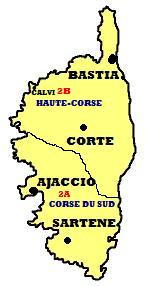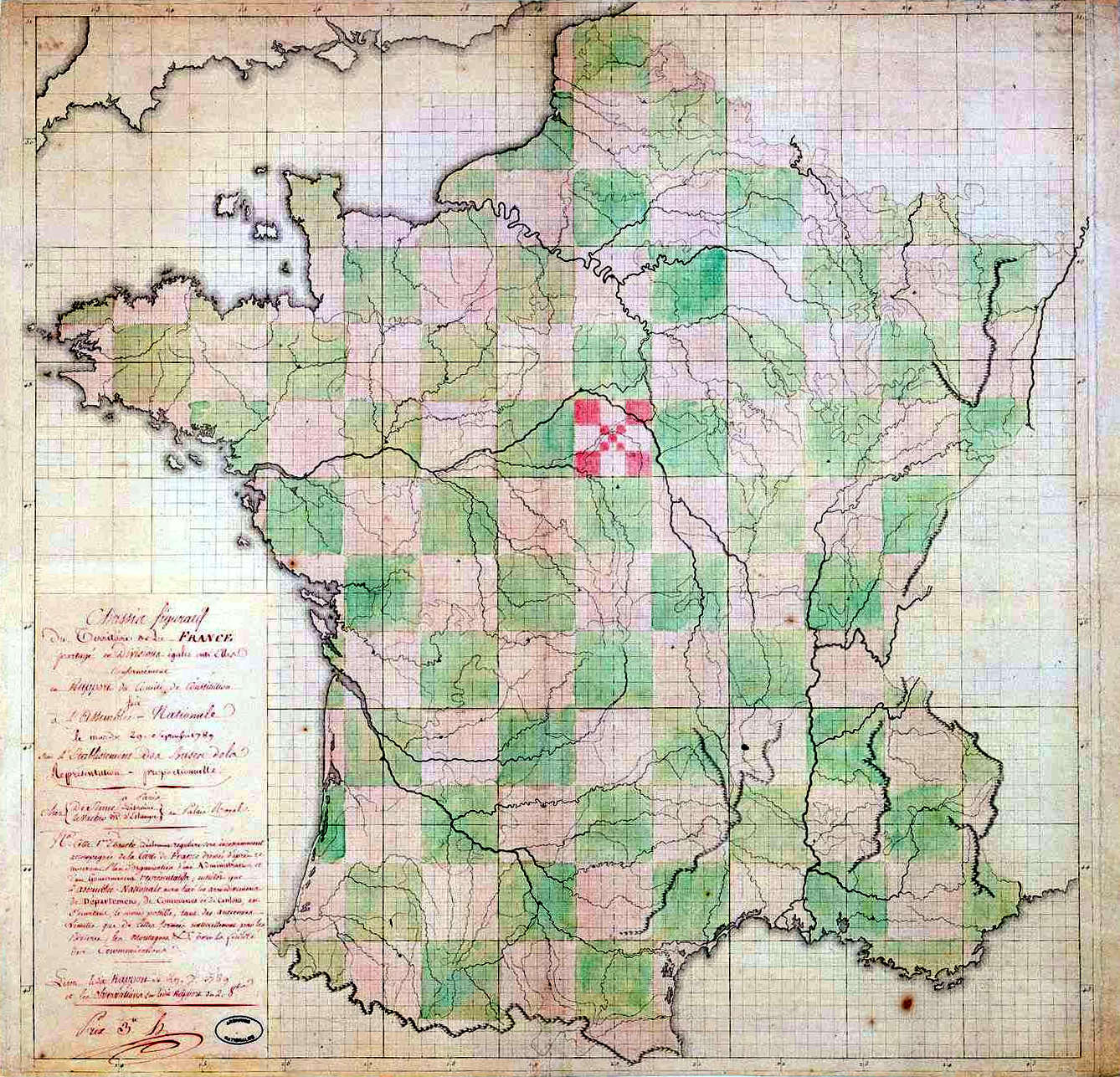|
Pietralba
Pietralba (; ) is a Communes of France, commune in the Haute-Corse Departments of France, department of France on the island of Corsica. Geography Climate Pietralba has a mediterranean climate (Köppen climate classification ''Csa''). The average annual temperature in Pietralba is . The average annual rainfall is with December as the wettest month. The temperatures are highest on average in August, at around , and lowest in January, at around . The highest temperature ever recorded in Pietralba was on 3 August 2017; the coldest temperature ever recorded was on 2 March 2005. Population See also *Communes of the Haute-Corse department References Communes of Haute-Corse {{HauteCorse-geo-stub ... [...More Info...] [...Related Items...] OR: [Wikipedia] [Google] [Baidu] |
Communes Of The Haute-Corse Department
The following is a list of the 236 Communes of France, communes of the Haute-Corse Departments of France, department of France. The communes cooperate in the following Communes of France#Intercommunality, intercommunalities (as of 2025):Périmètre des groupements en 2025 BANATIC. Accessed 28 May 2025. *Communauté d'agglomération de Bastia *Communauté de communes de Calvi Balagne *Cap Corse, Communauté de communes du Cap Corse *Communauté de communes de la Castagniccia-Casinca *Communauté de communes du Centre Corse *Communauté de communes de la Costa Verde *Communauté de communes de Fium'Orbu Castellu *Communauté de communes de l'Île-Rousse - Balagne *Communauté de communes de Marana-Golo *Communauté de communes Nebbiu - Conca d'Oro *Communauté de communes de l'Oriente *Communauté de communes Pasqu ... [...More Info...] [...Related Items...] OR: [Wikipedia] [Google] [Baidu] |
Communes Of France
A () is a level of administrative divisions of France, administrative division in the France, French Republic. French are analogous to civil townships and incorporated municipality, municipalities in Canada and the United States; ' in Germany; ' in Italy; ' in Spain; or civil parishes in the United Kingdom. are based on historical geographic communities or villages and are vested with significant powers to manage the populations and land of the geographic area covered. The are the fourth-level administrative divisions of France. vary widely in size and area, from large sprawling cities with millions of inhabitants like Paris, to small hamlet (place), hamlets with only a handful of inhabitants. typically are based on pre-existing villages and facilitate local governance. All have names, but not all named geographic areas or groups of people residing together are ( or ), the difference residing in the lack of administrative powers. Except for the Municipal arrondissem ... [...More Info...] [...Related Items...] OR: [Wikipedia] [Google] [Baidu] |
Haute-Corse
Haute-Corse (; , or ; ) is a department of France, consisting of the northern part of the island of Corsica. The corresponding departmental territorial collectivity merged with that of Corse-du-Sud on 1 January 2018, forming the single territorial collectivity of Corsica, with territorial elections coinciding with the dissolution of the separate councils. However, even though its administrative powers were ceded to the new territorial collectivity, it continues to remain an administrative department in its own right. In 2019, it had a population of 181,933.Populations légales 2019: 2B Haute-Corse INSEE History [...More Info...] [...Related Items...] OR: [Wikipedia] [Google] [Baidu] |
Departments Of France
In the administrative divisions of France, the department (, ) is one of the three levels of government under the national level ("territorial collectivity, territorial collectivities"), between the Regions of France, administrative regions and the Communes of France, communes. There are a total of 101 departments, consisting of ninety-six departments in metropolitan France, and five Overseas department and region, overseas departments, which are also classified as overseas regions. Departments are further subdivided into 333 Arrondissements of France, arrondissements and 2,054 Cantons of France, cantons (as of 2023). These last two levels of government have no political autonomy, instead serving as the administrative basis for the local organisation of police, fire departments, and, in certain cases, elections. Each department is administered by an elected body called a departmental council (France), departmental council ( , ). From 1800 to April 2015, these were called gene ... [...More Info...] [...Related Items...] OR: [Wikipedia] [Google] [Baidu] |
France
France, officially the French Republic, is a country located primarily in Western Europe. Overseas France, Its overseas regions and territories include French Guiana in South America, Saint Pierre and Miquelon in the Atlantic Ocean#North Atlantic, North Atlantic, the French West Indies, and List of islands of France, many islands in Oceania and the Indian Ocean, giving it Exclusive economic zone of France, one of the largest discontiguous exclusive economic zones in the world. Metropolitan France shares borders with Belgium and Luxembourg to the north; Germany to the northeast; Switzerland to the east; Italy and Monaco to the southeast; Andorra and Spain to the south; and a maritime border with the United Kingdom to the northwest. Its metropolitan area extends from the Rhine to the Atlantic Ocean and from the Mediterranean Sea to the English Channel and the North Sea. Its Regions of France, eighteen integral regions—five of which are overseas—span a combined area of and hav ... [...More Info...] [...Related Items...] OR: [Wikipedia] [Google] [Baidu] |
Corsica
Corsica ( , , ; ; ) is an island in the Mediterranean Sea and one of the Regions of France, 18 regions of France. It is the List of islands in the Mediterranean#By area, fourth-largest island in the Mediterranean and lies southeast of the Metropolitan France#Hexagon, French mainland, west of the Italian Peninsula and immediately north of the Italian island of Sardinia, the nearest land mass. A single chain of mountains makes up two-thirds of the island. , it had a population of 355,528. The island is a Single territorial collectivity, territorial collectivity of France, and is expected to achieve "a form of autonomy" in the near future. The regional capital is Ajaccio. Although the region is divided into two administrative Departments of France, departments, Haute-Corse and Corse-du-Sud, their respective regional and departmental Territorial collectivity, territorial collectivities were merged on 1 January 2018 to form the single territorial collectivity of Corsica. Corsican aut ... [...More Info...] [...Related Items...] OR: [Wikipedia] [Google] [Baidu] |
Mediterranean Climate
A Mediterranean climate ( ), also called a dry summer climate, described by Köppen and Trewartha as ''Cs'', is a temperate climate type that occurs in the lower mid-latitudes (normally 30 to 44 north and south latitude). Such climates typically have dry summers and wet winters, with summer conditions being hot and winter conditions typically being mild. These weather conditions are typically experienced in the majority of Mediterranean-climate regions and countries, but remain highly dependent on proximity to the ocean, altitude and geographical location. The dry summer climate is found throughout the warmer middle latitudes, affecting almost exclusively the western portions of continents in relative proximity to the coast. The climate type's name is in reference to the coastal regions of the Mediterranean Sea, which mostly share this type of climate, but it can also be found in the Atlantic portions of Iberia and Northwest Africa, the Pacific portions of the United States ... [...More Info...] [...Related Items...] OR: [Wikipedia] [Google] [Baidu] |
Köppen Climate Classification
The Köppen climate classification divides Earth climates into five main climate groups, with each group being divided based on patterns of seasonal precipitation and temperature. The five main groups are ''A'' (tropical), ''B'' (arid), ''C'' (temperate), ''D'' (continental), and ''E'' (polar). Each group and subgroup is represented by a letter. All climates are assigned a main group (the first letter). All climates except for those in the ''E'' group are assigned a seasonal precipitation subgroup (the second letter). For example, ''Af'' indicates a tropical rainforest climate. The system assigns a temperature subgroup for all groups other than those in the ''A'' group, indicated by the third letter for climates in ''B'', ''C'', ''D'', and the second letter for climates in ''E''. Other examples include: ''Cfb'' indicating an oceanic climate with warm summers as indicated by the ending ''b.'', while ''Dwb'' indicates a semi-Monsoon continental climate, monsoonal continental climate ... [...More Info...] [...Related Items...] OR: [Wikipedia] [Google] [Baidu] |
Météo France
Météo may refer to: *Weather in French * Météo-France, the French national meteorological service * MétéoMédia, a 24-hour Canadian French-language cable television specialty channel and web site * Météo Suisse, officially the Federal Office of Meteorology and Climatology, an office of the federal administration of Switzerland * Météo+ ''Météo+'' is a Canadian television sitcom which aired on TFO, the French language public broadcaster in Ontario, from February 14, 2008 to April 28, 2011. The series is about the colourful crew of Météo+, a fictional francophone weather chann ..., a Canadian television sitcom * Miss Météo, a Canadian Quebec French-language television series {{dab ... [...More Info...] [...Related Items...] OR: [Wikipedia] [Google] [Baidu] |
Météo-France
Météo-France is the official French meteorological administration, also offering services to Andorra and Monaco. It has the powers of the state and can exercise them in relation to meteorology. Météo-France is in charge of observing, studying, and forecasting weather and monitoring snowpack. The organization also issues weather warnings for the Metropole and the overseas territories. Météo-France is also in charge of recording and predicting the climate. Organisation The organisation was established by decree in June 1993 and is a department of the Ministry of Transportation. It is headquartered in Paris but many domestic operations have been decentralised to Toulouse. Its budget of around €300 million is funded by state grants, aeronautic royalties and sale of commercial services. Météo-France has a particularly strong international presence, and is the French representative at the World Meteorological Organization. The organisation is a leading member of EUM ... [...More Info...] [...Related Items...] OR: [Wikipedia] [Google] [Baidu] |





